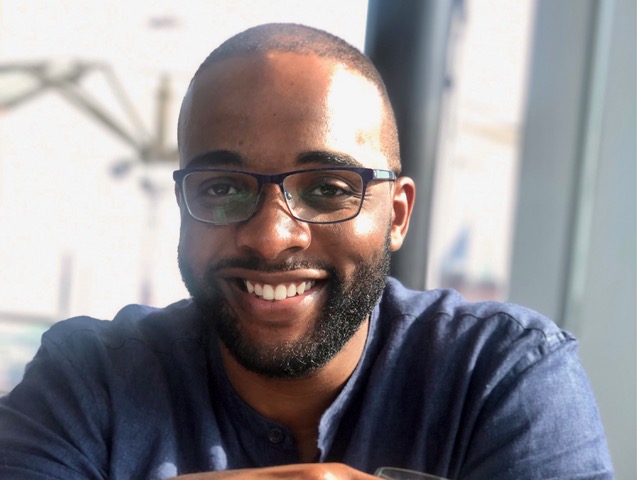
February 19, 2021, by mszrm4
Spotlight on Scholars – Dr Brian Aine
This is one of our “Spotlight on Scholars” blog posts: introducing current members of our student body and discussing what attracted them to #MedEd and the Nottingham Course.
What is your current role in medical education?
I am currently a foundation year 1 doctor which means, interestingly, I am more on the ‘other side of the classroom’, being taught than doing the teaching. Having received my primary and secondary education in Uganda and my undergraduate degree in the United Kingdom, I have seen education through two very different lenses. This can sometimes prove to be a challenge, as the two systems engage learners in different ways. However, the more I engage with the content and theories, the more I appreciate the role a teacher has in understanding the needs of the learners and trying to reach for equity rather than equality in a bid to help learners achieve their individual goals.
Which one of the 12 roles of a teacher appeals most to you and why?
The teacher as a Planner and Facilitator are the roles that appeal to me the most. There are a few topics in medical school that I struggled with – more so to do with the planning and facilitation of the lesson rather than the actual content. Given, some content will be harder to understand than others, but a teacher can make a tremendous difference to the journey a student experiences in a bid to understand difficult concepts. Drawing from my strengths, I feel that exploring and maturing these skills would be paramount to my development as a teacher.
Tell us about one thing you’ve discovered studying on the course that you didn’t know before?
Bjork’s theory of disuse and the exploration of the difference between learning and performance. Previously learning and performance were terms that I used interchangeably but gradually understanding that learning is more of retention and transfer while performance is generally measured during or shortly after the instruction. I find that the course is often holding a mirror up to me and constantly challenging me to explore and interact with different concepts
What’s the most interesting paper you’ve come across so far in your reading?
“The Dreyfus model of clinical problem- solving skills acquisition: a critical perspective.” The Dreyfus model is often referred to in skills acquisition and sometimes superficially superimposed to the clinical environment. A critic of the model in relation to medical practice was particularly eye-opening.
“We cannot merely accept the temptation to oversimplify these complex processes, and ignore intentionally or not information from science, in particular from cognition psychology and neuroscience.”
But generally, for the academic world, respectfully critiquing each other’s work is necessary for individuals to constantly have dialogue to generate ideas for research and better already existing and future research.
What would you like to achieve by the end of this year?
Engagement with colleagues with various backgrounds not only avails me of the opportunity to tap into a wealth of knowledge, but also facilitates me forming bonds and connections that could potentially last a lifetime. So to answer that question, at the end of the year I want to be able to say that on top of developing on my roles as a teacher, I have also made friends and colleagues that I can always comfortably ask for assistance on my continuous journey as an educator.
Lastly, as much as the ultimate goal of the course is to interact with both material and colleagues to enhance my preparation for my future role as an educator, I am fascinated to how the experience will change my perspective as a learner. Will, this experience make me a better learner myself? Stay tuned …
Dr Brian Aine is a Foundation Year 1 doctor and a scholar on the Masters in Medical Education
Join us on the Nottingham MedEd course: https://www.nottingham.ac.uk/pgstudy/course/taught/medical-education-mmedsci
Further reading:
Crosby, R.H.J., 2000. AMEE Guide No 20: The good teacher is more than a lecturer-the twelve roles of the teacher. Medical teacher, 22(4), pp.334-347. (Abstract online here: https://www.tandfonline.com/doi/abs/10.1080/014215900409429 )
Peña, A., 2010. The Dreyfus model of clinical problem-solving skills acquisition: a critical perspective. Medical education online, 15(1), p.4846. (https://www.tandfonline.com/doi/pdf/10.3402/meo.v15i0.4846)
No comments yet, fill out a comment to be the first

Leave a Reply